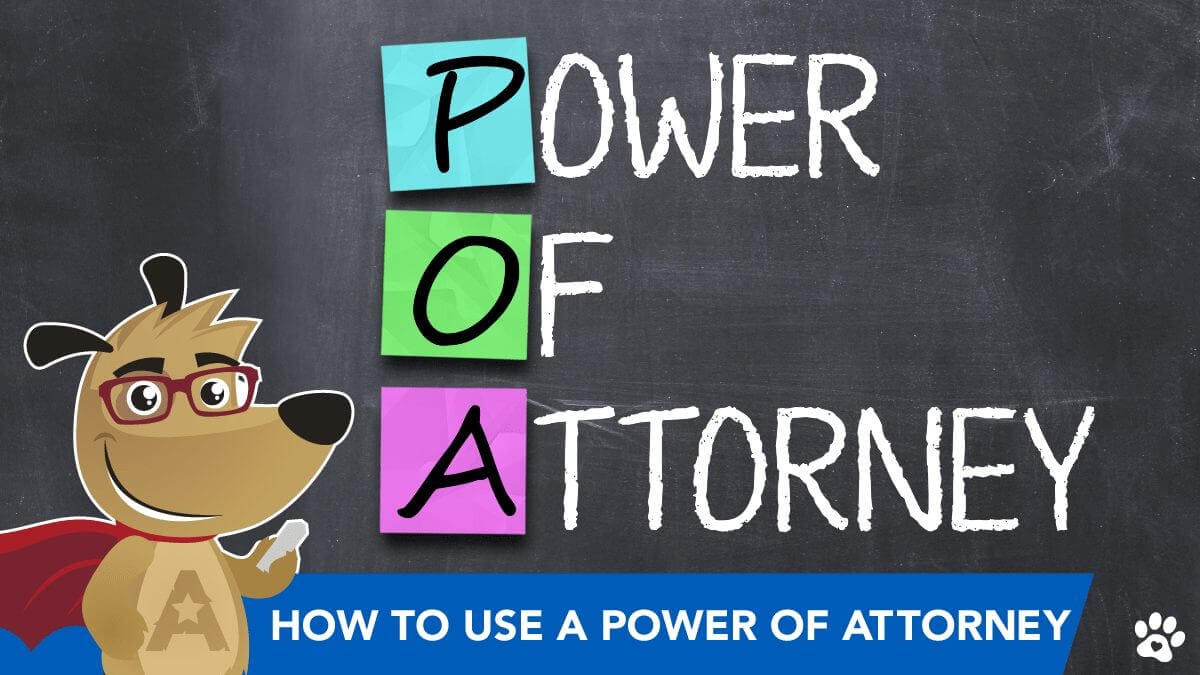
America's #1 Rated Reverse Mortgage Lender*
Power of Attorney for a Reverse Mortgage — HUD Rules for Competent & Incompetent Borrowers
 |
Michael G. Branson, CEO of All Reverse Mortgage, Inc., and moderator of ARLO™, has 45 years of experience in the mortgage banking industry. He has devoted the past 20 years to reverse mortgages exclusively. (License: NMLS# 14040) |
 |
All Reverse Mortgage's editing process includes rigorous fact-checking led by industry experts to ensure all content is accurate and current. This article has been reviewed, edited, and fact-checked by Cliff Auerswald, President and co-creator of ARLO™. (License: NMLS# 14041) |
I have the Durable Power of Attorney for my parents, who are age 83 and 73. They own their home. I am considering applying for a reverse mortgage for them. What do I need to do?

Great question — and perfect timing! Understanding how to use a Power of Attorney (POA) for a reverse mortgage is far easier when you know the rules up front. The U.S. Department of Housing and Urban Development (HUD) provides specific guidelines for POAs in Home Equity Conversion Mortgage (HECM) transactions. Let’s break it down so you’re prepared.
HUD Guidelines for Power of Attorney in Reverse Mortgages
HUD outlines distinct rules based on the borrower’s legal competency. Here’s a summary:
HUD POA Guidelines at a Glance
| Borrower Status | Who Can Sign? | Key Requirements |
|---|---|---|
| Legally Competent | Borrower or POA | - POA can sign all documents (e.g., Form 1009, HUD-92900A, closing docs). - Valid photo ID for borrower and POA. - Must comply with state laws and CIP rules. |
| Legally Incompetent | Court-appointed guardian/conservator or POA | - Guardian must prove authority to obligate borrower. - Durable POA must predate incapacity, comply with state laws (signatures, notarization, etc.). - Physician letter or court oversight may be required. |
POA for Legally Competent Borrowers
For borrowers with legal competency, a durable POA can sign all key documents, including:
- HECM counseling certificate
- Initial and final applications (Form 1009, HUD-92900A)
- Closing documents
Requirements:
- Both borrower and POA must provide valid government-issued photo IDs.
- Compliance with state Customer Identification Program (CIP) rules at application and closing.
POA for Legally Incompetent Borrowers
For borrowers lacking legal competency, additional steps ensure the POA or guardianship is valid:
Competency at POA Execution
- Physician’s Role: A doctor must confirm the borrower was competent when the POA was signed. The illness onset date must follow the POA execution date.
- Documentation Challenges: If the original physician is unavailable (e.g., retired or deceased), the current physician must review past medical records and provide a letter attesting to prior competency.
- Court Oversight: If physician documentation isn’t possible, a court-appointed conservator or guardian is required.
Durable POA Specifics
- Must be created before incapacity and designed to survive it.
- Must meet state requirements for signatures, notarization, and recording.
Pro Tip: Review your situation with your loan originator early to avoid delays.
Preparation Is Key
A reverse mortgage with a POA can be straightforward with proper planning:
- Advance Review: Discuss your circumstances with your lender to confirm requirements.
- Documentation: Ensure the POA is recorded in your county (or available as an original at closing).
- Communication: Proactive steps prevent complications.
Need Help with Your POA Question? Speak to an expert at All Reverse Mortgage, Inc. (ARLO™) — America’s #1 rated lender with a 4.99/5-star rating! Call (800) 565-1722 or click here for your free consultation.
POA FAQs
Can a Power of Attorney be used to obtain a reverse mortgage?
When can a Power of Attorney not be used?
Is the Power of Attorney responsible for the reverse mortgage?
Can the Power of Attorney withdraw funds from the reverse mortgage?
Does the Power of Attorney document have to be recorded?
ARLO recommends these helpful resources:

 Michael G. Branson
Michael G. Branson Cliff Auerswald
Cliff Auerswald

April 7th, 2025
April 7th, 2025
April 22nd, 2024
April 27th, 2024
March 21st, 2024
March 21st, 2024
September 22nd, 2023
September 22nd, 2023
June 17th, 2023
June 17th, 2023
March 29th, 2023
March 29th, 2023
November 4th, 2022
November 4th, 2022
August 16th, 2022
August 16th, 2022
July 6th, 2022
July 6th, 2022
May 17th, 2022
May 17th, 2022
March 29th, 2022
March 29th, 2022
February 19th, 2022
February 22nd, 2022
February 16th, 2022
February 16th, 2022
May 28th, 2021
June 1st, 2021
May 11th, 2021
May 11th, 2021
May 11th, 2021
May 11th, 2021
April 7th, 2021
April 7th, 2021
February 9th, 2021
February 9th, 2021
September 30th, 2020
September 30th, 2020
June 15th, 2020
June 15th, 2020
June 8th, 2020
June 8th, 2020
May 18th, 2020
May 18th, 2020
March 16th, 2020
March 16th, 2020
September 23rd, 2019
September 23rd, 2019
August 3rd, 2019
August 3rd, 2019
June 10th, 2019
June 10th, 2019
June 10th, 2019
June 10th, 2019
May 29th, 2019
May 29th, 2019
April 29th, 2019
April 29th, 2019
April 8th, 2019
April 8th, 2019
March 27th, 2019
March 27th, 2019
March 26th, 2019
March 26th, 2019